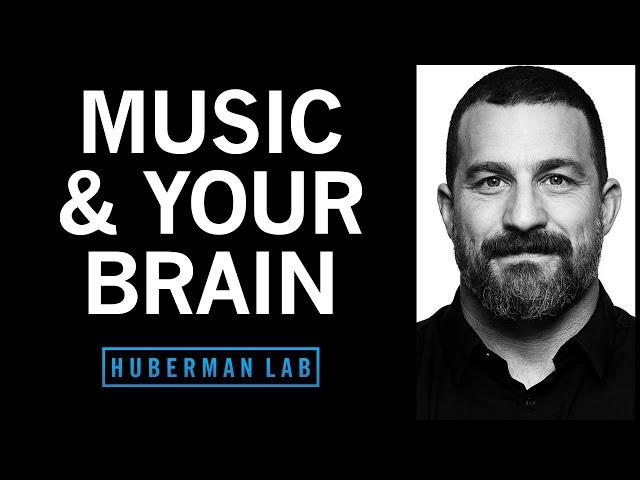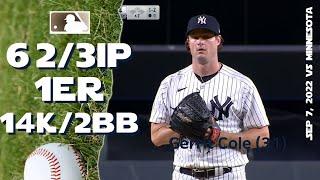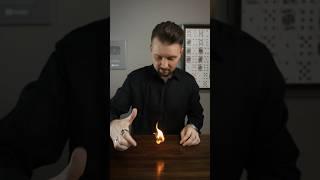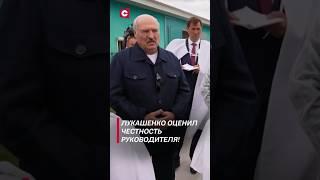
How to Use Music to Boost Motivation, Mood & Improve Learning | Huberman Lab Podcast
Комментарии:

Acid Techno & mdma & K can reset your brain 😮
Ответить
Andrew loved this episode thank you. I did grow up with playing music however Ive never had any training whatsoever. I've intuitively picked it up but now play piano, drums and guitar. I literally just keep practising (ive no idea what notes im playing or the theory behind it,) and now able to play things like Debussy and Chopin. My brain just seems to work on it and then one day I start to notice the patterns of finger movement, I then start to see how it was composed and it just crystalises in my brain and it sticks as easily as any routine thoughtless activity like driving. It must all be cerebellar and subconcious and I find if i actively try and "learn" the piece its exhausting I despise the activity. Anyway thought Id just put my POV across. Dont put any pressure on yourself with your new instrument, little and often and I think neuroplasticity will take over the rest. Thank you for all your work
Ответить
you seem like more of a trombone guy to me.
Ответить
Hey Andrew I was wondering if you could re visit stretching you have a super detailed explanation of static stretching that I use now but I want to do dynamic and ballistic as well and I trust your info. Is there any way you could re visit those and explain them some more?
Ответить
I think you should have the Musician from Tom on Bert’s podcast You were on read this 😉
Ответить
Would love many more episodes on this topic!! Also, talking about vibrations and frequencies of the brain, an episode with Joe Dispenza as guest would be extremely interesting 🙌🏼 Thank you as always for these super informative podcasts, appreciate them so much.
Ответить
I use music all the time to change my mood n dance to keep fit. Its gotta be uplifting n it's certainly healing process.. , I walk alot with tunes on concentrating on breathing, this gives me goose bumps sometimes for minutes at a time n this feels like the body is scanning to see what's wrong. I think may be bob marley was on to something saying music is the path to consciousness.. I know this video has helped me understand what I already feel.. So for that I can't thank you enough doc.. On a random note n it's only a thought but consciousness feels like its conecteted to ya cerebral fluid n ya ya spine is actually a storage stack n memories are stored in ya flesh lol.. hippy crap I know but that's how it feels to this monkey.. Have a good day guys..
Ответить
Long time listener of this show, love your work Dr Huberman. Will be attending your lecture at the Sydney Opera House, and cant wait.
Would love to hear an interview between you and Antonio Damasio or Dr Ramachandran :)

This channel is a gift. 🙏
Ответить
Music has helped many people with Parkinson's, too. It is a magic elixir for our body.
Ответить
Amazing report!,I wonder if you can talk about the 440 Hz against 432 Hz, please I would love to hear information about that! thank you so much! We love your content and the way to transmit your information ❤
Ответить
It's a great job you are doing,, amazing❤ keep going man ❤
Ответить
Anybody knows at what point he talks about people being able to do congitive work with music? He only talks about those who aren't
Ответить
This was a fantastic episode! I’ve been a professional singer and musician for decades and I was absolutely intrigued! Thank you! 🎸
Ответить
Who else couldn't make it through the podcast without turning on some tunes?
Ответить
I have a sister professor Andrew : my sister get seizures with the song of Micheal Jackson “I Can’t help it. Very sad how she get seizure to this song.. so happy to fallow you.. you are awesome… you got the answer
Ответить
GET IN THE VAN ??? LMAO...Or... GET IN THE VAN !!!!!!!!!!!!!!!!!!!!!
Ответить
Question for Huberman:
What’s happening neurologically when a specific song isn’t taking us into the same state it usually does?

I could teach you how to play guitar well enough to then turn around and teach yourself how to play professionally within will say a year, but that's with only about 10 minutes of practice every day. Just going through exercises for several months. Then you get taught how to read the guitar tablature which is super easy and it will take a hold of 30 seconds. Probably. Then after that you're able to read the guitar tablature and listen to a song and go ahead pick some simple songs and play. It's not easy to learn guitar necessarily, but it's one of the easier instruments because of guitar tablature and references to look to. I've learned how to play upside down and left-handed in the matter of about 1 year from a one minute practice every day
Ответить
Hi Andrew, to begin with, thank you for this wonderful episode on Music and the brain, and the recent ones with Dr. Paul Conti, which provided a treasure trove of good information for helping us all keep our mental health on an even keel.
In this episode on music, you briefly mentioned brain lateralization and the many pop psychology misconceptions out there; this brought to mind an idea for a potential guest for your show, in the shape of Iain McGilchrist, whose life’s work has been studying brain lateralization. He also dispels many of the popular myths out there, and then brings decades of scholarly analysis to replace them with some fascinating insights and hypotheses.
He’s probably best known for his 2010 book “The Master and his Emissary: The Divided Brain and the Making of the Western World”, which I loved. And now his follow up monumental two volume tome, “The Matter with Things: Our brains, Our Delusions and the Unmaking of the Modern World”, which is now sitting on my shelf mocking me with its weighty 1500 pages. I will read it, but in the meantime, I would absolutely love to hear you in conversation with him to further explore the topic.
On the off chance you haven’t heard of him, he’s not some crackpot, or at least if he is he’s a very well educated and convincing one. He is a Fellow of the Royal College of Psychiatrists, a consultant Emeritus at Maudsley Hospital, London, and has researched in neuroimaging at John’s Hopkins University, Baltimore, amongst many other things.
If you haven’t read any of his work, Sam Harris did an interesting interview with him about a year ago, which might spark your interest.
Sam Harris and Iain McGilchrist – The Divided Mind.
Might be a long shot but regardless, thank you so much for all your wonderful content.
Very much appreciated!
Vincent

Could you interview
John Stuart Reid is an acoustic physics researcher who has pioneered the study of sound for five decades. After experiencing a significant healing of his lower back during his acoustics study of the Great Pyramid of Giza in Egypt, he began a life-long career in the field of sound visualization and sound healing.
And is there anything in 432hz why the standard for tuning music back in the 50s to 440, and any impact this may have on our cells, considering a large percentage of our body is water.

I would love to send the summary (outline) of this to my 3rd year engineering daughter, PLEASE!
Ответить
Already experienced music manipulation in regards to my memory, emotions, sense of time and even sexual arousal....against my wishes. Both in a legal sense and quite frankly things I naturally would not choose, in peace and now has defined an oppositional response. Which only serves those whom need indications of my being inorder to commence controlling factors.
Ответить
So sound torture is viable.
Ответить
I wonder what would happen if the same music was played but at a hz too far above or below human hearing
Ответить
harh stroke installment
Ответить
Thank you for your interesting podcasts ! This one was of particular interest to me. I have a question to whether there are studies of people like myself that hear a piece of music with/without lyrics that will play over and over in their head and will NOT leave until listening to another? It plays through my sleep and I "hear" it when I wake. I also have a constant ringing in my ears. I love music but this has become a problem. On a side note my hubby thinks it funny to Hum or sing something when I'm getting ready to sleep. 😑🤨
Ответить
Thanks for the episode. I'm an musician that had a stroke while on stage performing in 2020 and have gleaned a lot of information from you and your podcast, especially from this episode. If I could ever be of service to you and your research please don't hesitate to get in touch.
Ответить
Although I'm stoked that my favorite podcaster is finally talking about my favorite subject in depth, I am disappointed that the discussion mostly examines the passive aspects of music, i.e. listening. If you want to learn how music really works, study the playing of music. If music predates language, trust me, playing music predates listening to music. Studying what happens to the brain while playing music will tell us a lot about humanity. I would love to hear about someone continuing the efforts of the great scientist Oliver Saks, who devoted the end of his career to this line of inquiry. And finally - please, someone study the neurological environment of musical creativity, what's going on upstairs when someone improvises, or composes.
Ответить
Music and Light effects in harmony using devices like Amazon Alexa also creates a beautiful experience🧡💜🎮🎮🌹
Ответить
Thoroughly enjoyed this episode! As a rapper who words and vocalization as an instrument, I’d be interested in any data on the brain and FREESTYLE rhyming and maybe it’s correlation with improvisational musicians and their brains. I think there’s a fascinating flow state going on there!
Ответить
Quando è meglio ascoltare la musica: in un periodo di pausa tra una sessione e l'altra di lavoro o durante brevi periodi (aumenta concentrazione e potenziare, l'abilità cognitiva di imparare)
La musica è in grado di descrivere le emozioni ed evocarle in noi
Se una persona ascolta dai 10 ai 30 minuti di musica al giorno: battito cardiaco a riposo è minore. + heart rate variability rase.
Chicca: se io allungo inspirazione vado a incrementare battito cardiaco, se io rallento espirazione o la faccio veloce, vado ad abbassarlo(fenomeno respiratory sinus arrhythmia (praticamente viene lasciato più spazio al cuore, le strutture cardiovascolari si espandono e il sangue ha più spazio per scorrere e quindi il battito cardiaco rallenta, in particolare ciò è dato dal diaframma). Quando inaliamo, il diaframma torna su lo spazio è minore e il sangue quindi si muove più velocemente
Quando ascoltiamo musica siamo più incentivati a muoverci
Studi dimostrano che quando si ascolta musica più veloce di 140-150 Beats per minute, crea uno stato che ci incoraggia a muoverci. Se non ti senti motivato a fare un esercizio fisica o qualcosa anche di intellettivo come lo studio, ascolta 10-15 minuti musica veloce 140-150bpm.
Si rende meglio in attività intellettuali con il silenzio. Un po' meno con una base strumentale sotto ed ancora meno con una canzone con testo sotto
Per ricordare meglio, assorbire maggiormente ciò che si studia, ripetere nella mente le parole e ascoltare la vocina che le legge.
(può con o senza testo)
Musica felice: attiva muscoli fronte (140-150bpm), ascoltandola per 9 minuti si può transitare da un qualsiasi stato ad uno stato felice
Musica triste: rilassa, i muscoli tra sopracciglia, dando espressione più serie (<60bpm) ascoltandola per 13 minuti (essendo tristi) ci fa andare oltre quello che è il sentimento di tristezza (non è necessario mettere timer)
Per ridurre l'ansia nel modo più veloce possibile sul momento: inspira 2 volte dal naso e poi espira dalla bocca fino a che non rimane aria
Canzone che riduce fino a 65% ansia "weightless by Marconi Union"
Ascoltando musica(che solitamente non si ascolta) o suonando uno strumento per 10-30 minuti per 3-4 giorni a settimana, aiuta a migliorare le connessioni neurali e migliorare l'apprendimento
(Finito riassunto video)

Why is it that I can listen to music (amapiano, rap, pop) and am better able to focus better on creative activities or repetitive computer tasks. I get distracted from my flow in silence?? Silence is loud to me.
Ответить
I really hope someone sees this who's part of the podcast! I had a stroke a birth which scarred my frontal cortex and have seizures. Music is a huge part of my life. I really appreciate all the info I love learning about the brain it's amazing. Ty again
Ответить
This is such fun, spectacular science! Music feels like a very important part of our being & existence. I wish I had more time to play more music & more instruments 😊 I said to my family this morning in fact during our commute that life is busy and I'm planning to play more when I'm dead 😂. I can relate so well from personal experiences to the data presented here, yet I'm learning a ton. Music moves us, frees us, binds us together, and I even understand my Heavenly Father better knowing He made us like Him--so music moves Him too--and, we can go as far as sharing a musical experience with our creator. JSYK, Dr. Huberman, every Friday I sharewith my students a brief neuroscience spotlight of research-based protocols for better living that you & others provide, and many of them find it both useful and fascinating enough to learn more on their own. On a side note, some of the learning/memory tricks like the 10 sec. pause--gap effects--while practicing have improved my musicianship and 2nd language acquisition in ways I haven't experienced in 30 years of practice 🤙
Ответить
When I was a telecommunications instructor. I discovered that I took 8 hours to present what I could read in 20 minutes. If I want to learn new material, I still pretend that I am going to teach it.
Ответить
As an intensive care nurse working with neonates for many years I can attest to the calming effects of music . I wish there was more research pertaining to this age group.
Ответить
I could not wait to listen to this in its entirety with undivided attention and it did not disappoint! I’m once again reminded of the healing power among many other effects music has on the brain. After my niece was born she was in the NICU for one month. The hospital had a music therapy program there for the babies and some would have iPads placed directly in their cribs so they could hear the music. Fascinatingly, she had come to “remember” certain songs throughout that time there. Once she came home, there would be times where she would be crying and my sister would put on a specific couple of songs she’d been hearing at the hospital and she would almost immediately stop crying! It was wild! I saw it with my own eyes multiple times😂🥹
Ответить
When I was diagnosed with Bipolar disorder at 24 I hadnt been working for a couple of years but my love of the human body never left me so I told myself I would get a degree. So, the Open University gave me the ability to do this. It took me five years but I got there. The last modules I did were neuroscience modules. They changed how I see the world. Three weeks into the module on the senses I sat crying on my bed because I just didnt understand. By the end I got a distinction. Neurobiology changed my life. And now my nephew has started to question things at age 7. My level of excitement and passion is as great as Andrews here. My knowledge?...I can only wish. He gets so excited and its infectious. And now my nephew has caught the bug and I couldnt be more thrilled. Anyway, I just wanted to thank everyone with the podcast for keeping science exciting and relevant and available. Thank you.
Ответить
This episode leads me to believe music is the purest and most primal of arts, because it's literally just complex patterns expressed through a very limited medium. Looking at it this way seems to give a lot of sense to the findings in the papers. It boosts mood and productivity, because it's challenging and relaxing to the brain at the same time. With the brain recognising and processing so many patterns non-stop to keep us alive, no wonder it enjoys when patterns that aren't crucial to your survival are thrown its way.
Ответить
I think the weightless song actually gives me more anxiety because of the vague and neutral structure
Ответить
I've definitely noticed my brain taking shortcuts/asumptions when remembering patterns from a song. Usually the trigger to noticing the error was trying to learn to play a song on the guitar and having to compare what i thought the song sounded like to what it really sounds like
Ответить
Pantera was good for my health all along?!
Ответить
Coming from someone who doesnt have a science background Andrew is a blessing. I wish more such researchers make these kind of videos.
Ответить
What about sound healing instruments? Like Tibetan bowls, Chrystal bowls and Gongs? We already know them to be extremely beneficial for anxiety and other things. Thank you for all you do !
Ответить

























